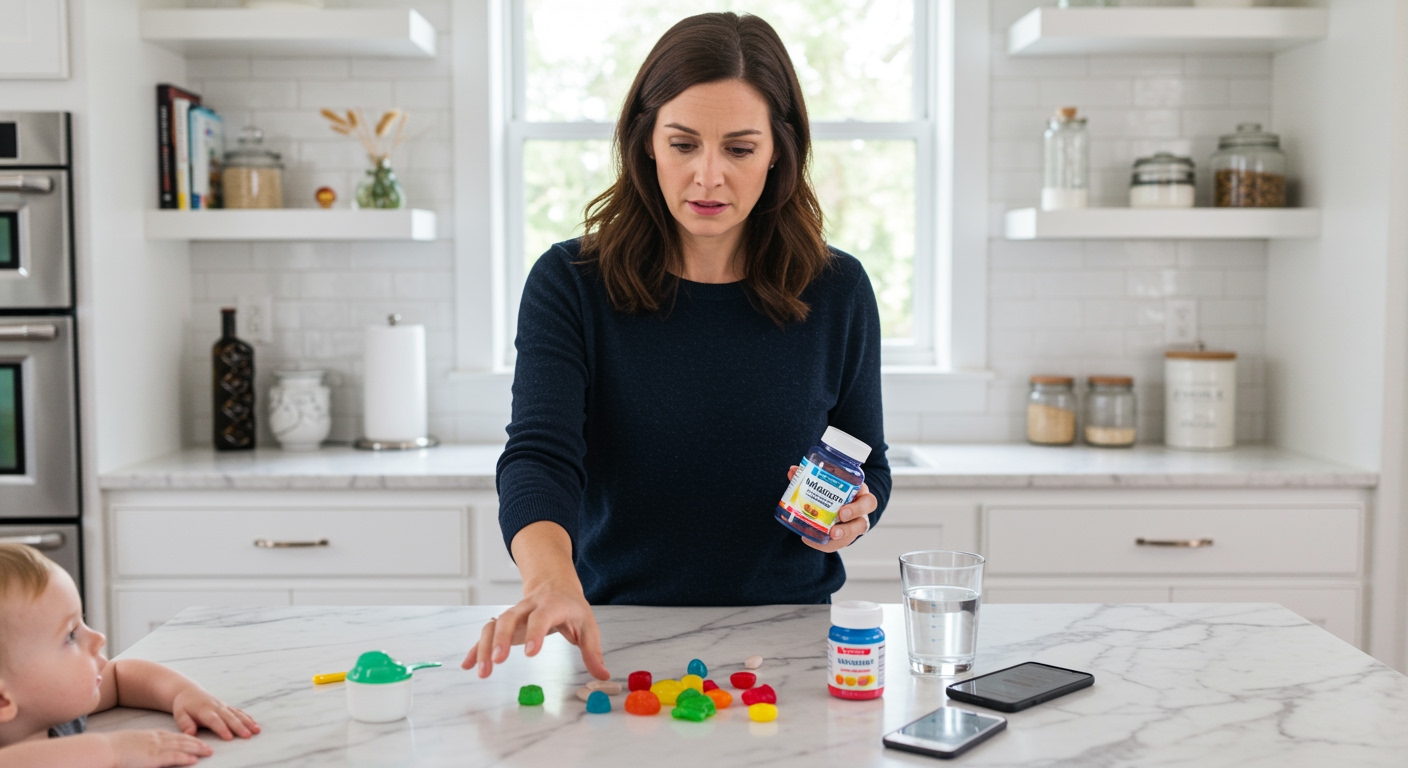✪ Key Highlight: Australian children are overdosing on melatonin gummies at alarming rates, prompting major retailers to halt sales.
Introduction
Sweet-tasting melatonin gummies are sending children to hospitals across Australia in record numbers.
The Western Australian Poisons Information Centre received 322 calls about melatonin overdoses by August 2025, nearly double the calls from 2018.
Hi, I’m Abdur, your nutrition coach and today I’m going to analyze this alarming surge in melatonin gummy overdoses among Australian children and what parents need to know about these dangerous supplements.
Why Are Children Overdosing On Melatonin Gummies?
Children mistake melatonin gummies for regular candy because they taste sweet and look identical to popular lollies.
An American online retailer recently suspended all melatonin product sales to Australia after a spike in overdose reports.
The candy-like appearance creates a dangerous situation where children consume multiple gummies thinking they are treats.
Parents often store these supplements in easily accessible locations, not realizing the serious risks they pose to curious children.
Dr. Tim Jones from the RACGP warns that it is only due to luck that there have not yet been deaths from melatonin overdoses among Australian children.
✪ Pro Tip: Store all supplements in child-proof containers away from children’s reach, just like prescription medications.
What Makes Melatonin Gummies So Dangerous?
Melatonin is a hormone naturally produced in your brain to regulate sleep cycles, not a harmless vitamin supplement.
The biggest concern with melatonin gummies is the uncertainty about how much melatonin they actually contain.
Studies show melatonin levels in these supplements can vary from almost zero to four times the amount stated on the label.
Some products contain serotonin, which can interact dangerously with melatonin and affect a child’s mood and behavior.
Children metabolize melatonin differently than adults, with preterm infants processing it much more slowly, making them extremely vulnerable to toxicity.
There is little research on long-term effects of melatonin use in children or what constitutes a truly safe dose for developing bodies.
✪ Fact: Melatonin affects multiple hormone systems in the body, not just sleep regulation.
What Are The Overdose Symptoms Parents Should Watch For?
Overdose symptoms can vary depending on the child’s age, weight, and individual metabolism factors.
Common signs include significant nausea, excessive sleepiness that lasts much longer than normal, and severe migraines.
Children may experience mood changes, confusion, or unusual behavioral patterns after consuming too much melatonin.
In the United States, there have been hospital visits and even seven deaths in young children where melatonin gummies were suspected as the cause.
The potential effects on other body systems and hormones remain unknown, making every overdose a serious medical emergency.
✪ Note: Contact poison control immediately if you suspect your child has consumed multiple melatonin gummies.
When Is Melatonin Actually Safe For Children?
Prescription melatonin can be effective and relatively safe for children with neurodevelopmental disorders like ADHD and autism.
Medical experts agree that melatonin use is appropriate for children with autism, ADHD, or certain developmental disabilities under medical supervision.
The American Academy of Pediatrics does not recommend routine use and advises parents to consult a doctor before giving melatonin to their children.
Short-term use may help reset sleep schedules or support bedtime routines, but only when prescribed by a healthcare professional.
Healthy sleep practices like consistent bedtime routines, no caffeine, and no screens before bed should always come first.
Recent research found that 70 percent of Australian parents surveyed had used melatonin for their children, despite lacking high-quality evidence of benefit and long-term safety.
✪ Pro Tip: Focus on sleep hygiene basics before considering any supplements for your child’s sleep issues.
The Bottom Line
Melatonin gummies pose serious risks to children and should never be treated like harmless candy or vitamins.
Your child’s safety is worth more than the convenience of a quick sleep fix.
I encourage you to share your thoughts, questions, or experiences with children’s sleep challenges in the comments below – your insights could help other parents make safer decisions.
References
At NutritionCrown, we use quality and credible sources to ensure our content is accurate and trustworthy. Below are the sources referenced in creating this article:
- RACGP NewsGP: Warning after melatonin sales suspended
- Children’s Hospital: Melatonin for children
- University of Utah Health: Melatonin children pediatricians urge caution
- Science Alert: Melatonin overdoses in Australia raise questions over its safety in children
- PMC Research: Melatonin safety research





